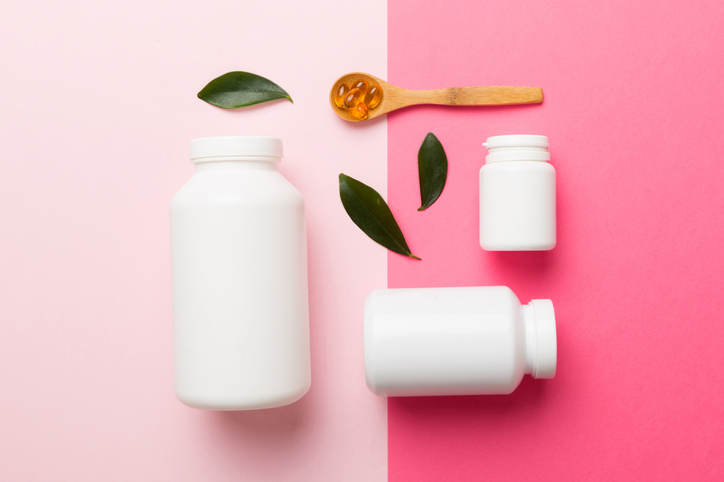
Top 3 Vitamins We Love for Skin Health
Learn why we love Vitamin B3, Vitamin C, and Vitamin D, and how each can make a difference in your skin health.
Dr Michael Rich is a specialist dermatologist who has been performing tumescent liposuction for over 30 years. Find out if Liposuction is suitable for you at ENRICH Clinic.
At ENRICH Clinic, we have a wide range of dermatological and cosmetic body treatments tailored to individual body and patient needs.
At ENRICH Clinic, our treatments are performed by our medical team consisting of doctors, nurses, and dermatologists and are tailored to each patient’s skin health needs.
ENRICH Clinic is committed to your skin health and well-being with a range of dermatological & cosmetic treatments tailored to the individual. Our treatments are performed by our medical team consisting of doctors, nurses, and dermatologists.
Skin health is essential for everyone. ENRICH Clinic has a wide range of technologies and dermatological solutions to help you achieve your skin care goals.
Collagen is a buzzword in the health and wellness industry, with many people turning to supplements and skincare products that contain this protein in the hopes of improving their skin, joints, and overall health.
But is collagen important for our bodies and what exactly is it?
We’ll take a closer look at what collagen is, where it’s found in the body, and what it does. We’ll also explore the evidence for and against collagen supplements and whether they’re necessary for maintaining good health.
Hopefully, you’ll have a better understanding of collagen and whether or not it’s something you should be incorporating into your own wellness routine.
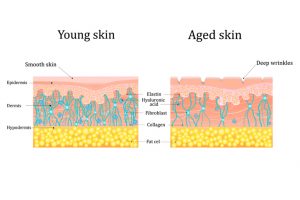
Collagen is an important structural protein that plays a vital role in ensuring the integrity and strength of our skin, hair, nails, bones, and joints. Without adequate amounts of collagen, these structures may become weaker and more prone to injury or illness.
The healing process for our wounds or injuries may also take longer since the lack of collagen impairs the ability of cells to repair themselves.
It also affects our skin texture, causing dryness and wrinkles due to reduced elasticity and hydration levels.
Our bones and joints are also affected, as collagen helps maintain their normal strength and flexibility, which diminishes when there isn’t enough collagen.
Besides ageing, other factors that contribute to low levels of collagen in our bodies include a lack of protein-rich foods–such as fish, eggs and dairy products–poor lifestyle habits such as smoking or excessive sun exposure.
There are a few ways to enhance our body’s collagen production, with some providing instant results and others having more prolonged effects.
Cosmetic treatments such as lasers, PDO threads, skin needling, and dermal fillers can help to instantly plump our face in areas where we have lost collagen. These treatments work by stimulating our body’s natural collagen production processes, which increase collagen over time.
Lasers can be used to heat up our skin’s surface and target deeper layers of tissue to stimulate collagen growth.
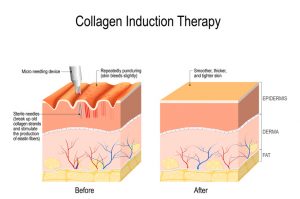
PDO threads, which stand for polydioxanone, help provide structure and strength to our skin by creating a scaffold for new collagen formation.
Skin needling is another option that involves using tiny needles on our skin’s surface to create micro-injuries that promote healing and stimulates new cell growth.
Finally, dermal fillers can be injected into specific areas of our face to create volume and make wrinkles less noticeable; this helps increase collagen levels over time and immediately provides a more youthful appearance.
If you want to start small, you can begin by changing your diet. Eating food that is rich in certain vitamins and minerals can help to boost collagen production.
Vitamin C, for example, helps to promote collagen synthesis and can be found in many fruits and vegetables, such as oranges, red peppers, strawberries, kale and spinach.
Iron is also essential for producing collagen. Red meat, dark green leafy vegetables like spinach or kale, eggs and legumes are all excellent sources of iron.
Zinc is essential for skin health, including the production of collagen. Good sources of zinc include oysters, beef and fortified cereals.
Copper also plays a vital role in producing collagen; you can find it in foods such as oysters, nuts and legumes.
Eating fatty fish like salmon regularly can provide beneficial omega-3 fatty acids that help support healthy skin cells.
Additionally, hydration is critical when it comes to keeping skin healthy; drinking plenty of water throughout the day can keep your body hydrated, which will help promote healthy skin cells.
Besides eating collagen-friendly food, you should also avoid foods that can damage collagen. Some foods and drinks, such as sugar, excessive alcohol consumption and processed food, can increase inflammation in the body and damage collagen fibres.
Note that a healthy diet should include a variety of nutrient-dense foods and should be balanced. Consult with a nutritionist or dietitian to ensure you get the right balance of nutrients to support collagen production and overall health.
Topical skincare products can also help with collagen production by providing our skin with ingredients that stimulate collagen synthesis, protect collagen fibres from damage, or both. Here are a few examples:
Keep in mind that not all skincare products are created equal, and some may not be as effective as others. Consult with our skincare professionals before starting any new skincare regimen, and be aware of the ingredients in the products you use.
Several lifestyle factors could contribute towards increased collagen production levels, including regular exercise, getting adequate sleep each night, spending time in the sun and avoiding smoking as well as dehydration by drinking plenty of water throughout the day.
Exercise is particularly beneficial, as increased physical activity leads to increased circulation, which could stimulate collagen synthesis within the body. Additionally, regular exercise helps to reduce stress levels, which is vital for collagen production since excessive amounts of stress hormones can interfere with the synthesis of new proteins.
Getting adequate sleep has also been associated with higher levels of collagen production. During sleep, our bodies naturally produce more growth hormones which help support our bodies’ natural ability to create and maintain healthy skin cells.
Spending time in the sun is also beneficial for collagen production, as exposure to ultraviolet light stimulates vitamin D production and encourages skin cell regeneration. But make sure you don’t overdo it. Climate change has adverse effects on our skin. Make sure you always use 50+ sunscreen when exposed to the sun.
Smoking, however, has the opposite impact – smoking damages cells and suppresses collagen formation leading to wrinkles and premature aging.
Similarly, dehydration can lead to a decline in skin elasticity due to its dehydrating effect on cells and connective tissue fibres such as collagen and elastin. As such, staying hydrated is essential for maintaining optimal collagen production; drinking plenty of water throughout the day ensures that our body is adequately hydrated to produce sufficient amounts of this vital protein.
Remember that a healthy lifestyle includes a balance of different activities and practices. Collagen production is a complex process that can be influenced by multiple factors, so focus on overall health and well-being rather than a single aspect.
When it comes to this question, research results are promising.
Several studies have suggested that a collagen supplement could provide a range of benefits for skin health and hair growth. For example, one study published in the journal Nutrients found that taking a collagen supplement for four weeks reduced wrinkles and improved skin elasticity in women 35 years old and up.
Despite the body of research on collagen supplements, Harvard expert claims potential conflicts of interest exist since most of the studies are either funded or partially funded by industries that could benefit from positive results.
Also, even if it does work, its effect is not immediately visible. It may take months or years for you to notice any difference.
While obtaining collagen through diet, lifestyle changes and supplementation is possible, you may achieve faster results via our dermal treatments. This can help boost collagen production in your body, leading to immediate improvements in skin texture, tone and appearance. Book an appointment with us today.
*With all surgeries or procedures, there are risks. Consult your physician (GP) before undertaking any surgical or cosmetic procedure. Please read the consent forms carefully and be informed about every aspect of your treatment. Surgeries such as liposuction have a mandatory seven-day cooling-off period to give patients adequate time to be sure of their surgery choice. Results may also vary from person to person due to many factors, including the individual’s genetics, diet and exercise. Before and after photos are only relevant to the patient in the photo and do not necessarily reflect the results other patients may experience. Ask questions. Our team of dermatologists, doctors and nurses are here to help you with any of your queries. This page is not advice and is intended to be informational only. We endeavour to keep all our information up to date; however, this site is intended as a guide and not a definitive information portal or in any way constitutes medical advice.
"*" indicates required fields
Combining Dr Rich’s dermatological skill with his knowledge of restorative skin regimes and treatments, the ENRICH range is formulated to help maintain and complement your skin. Our signature Vitamin C Day & Night creams are now joined by a Vit A, B,&C Serum and a B5 Hyaluronic Gel, both with hydration properties and much, much more.

Learn why we love Vitamin B3, Vitamin C, and Vitamin D, and how each can make a difference in your skin health.
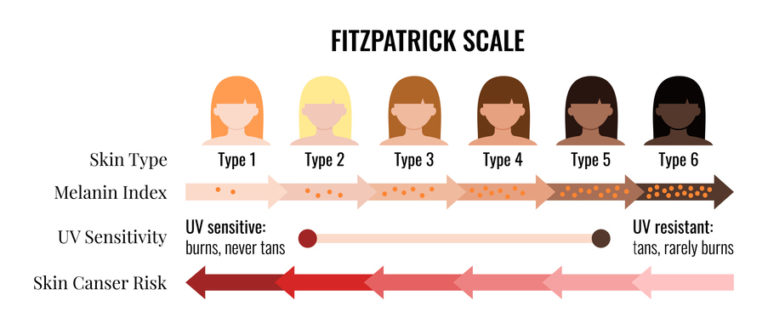
Learn what the Fitzpatrick skin type system is and why we always check your skin type before any procedure at Enrich.
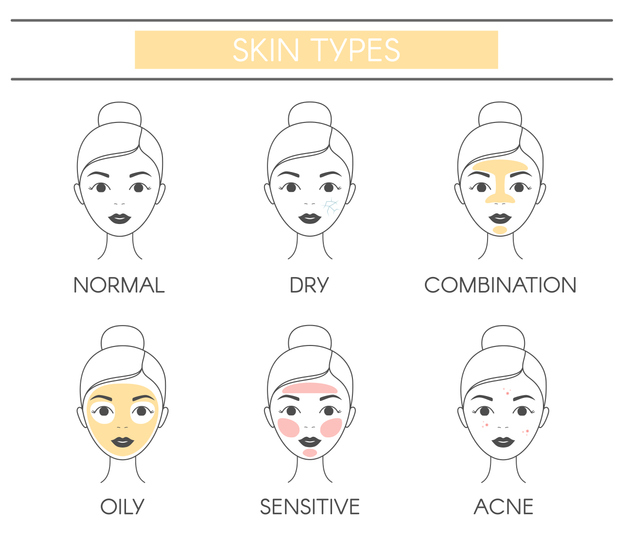
We address skincare trends & debunk myths while also providing guidance on products & treatments you should avoid based on your skin type.

Makeup can temporarily make your skin look flawless & dewy, but it merely masks imperfections & may not address the root causes of your skin concerns.
Subscribe to the ENRICH newsletter and receive latest news & updates from our team.
Enrich Clinic acknowledges the Traditional Lands of the Wurundjeri Woi Wurrung and Bunurong peoples of the East Kulin Nations on which we work and trade. We pay respect to their Elders past, present and emerging. We extend our acknowledgement and respect to the LGBTQIA+ community who we welcome and support. Read our full Acknowledgement Statement here
